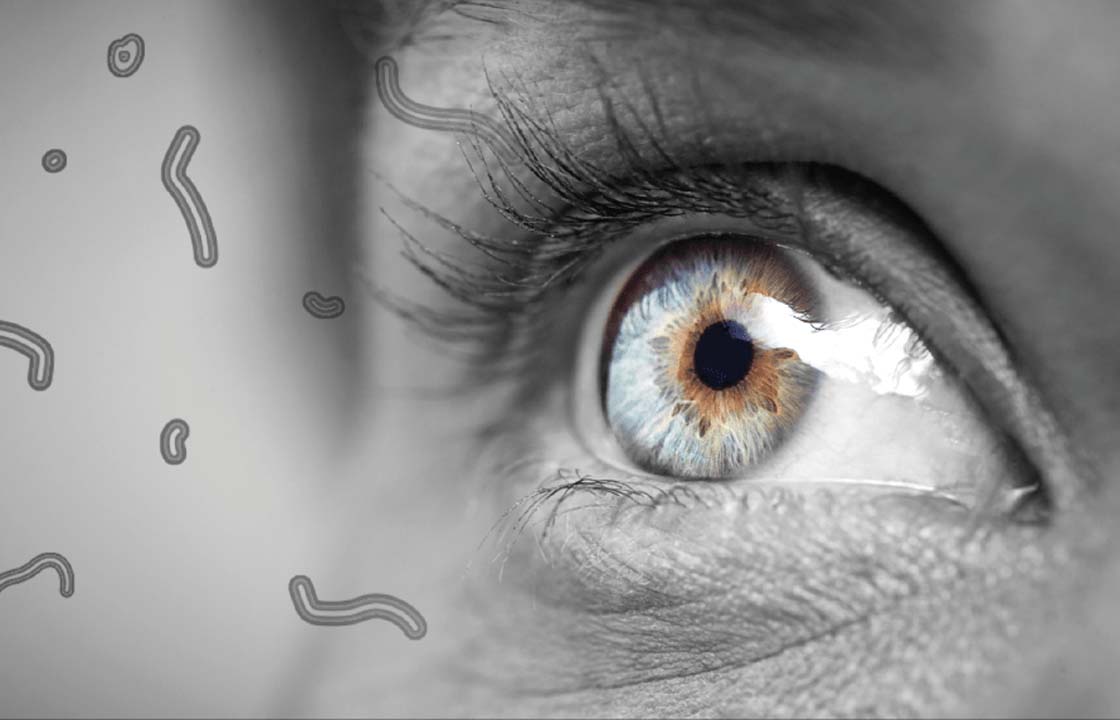The human eye is a remarkable organ that allows us to perceive the world around us. However, like any complex system, it is susceptible to various issues and imperfections. Ageing is a process which brings along numerous problems. You can witness eye floaters and unwanted flashes as well as you grow old.
What are eye floaters?
Eye floaters are visual disturbances characterized by small specks, strands, or clouds that seem to move across one’s field of vision. These floaters can appear as black or grey dots, blobs, squiggly lines, cobwebs, or even rings. They tend to become more noticeable when observing bright backgrounds and may dart away as our eyes attempt to concentrate on them.
Why do we see them?
- Changes in the Vitreous: Eye floaters are primarily attributed to age-related changes in the vitreous, a gel-like substance that occupies a significant portion of the eye. As the vitreous ages, it can become stringy and develop collagen fibers, which cast shadows on the retina, resulting in the perception of floaters.
- Eye Floaters vs. Eye Flashes: Eye flashes, on the other hand, are distinct visual phenomena that resemble brief bursts of light or sparks in one’s vision. They are often associated with retinal stimulation due to various factors, including age-related changes, eye injuries, or infections. While both eye floaters and flashes can be bothersome, it is crucial to differentiate between them.
- Causes of Eye Flashes:
- Retinal Stimulation: Eye flashes are typically caused by the retina’s response to stimuli, which may be electrical impulses triggered by vitreous changes, injuries, or infections.
Symptoms and Risks Associated with Eye Floaters and Flashes:
The symptoms of eye floaters and flashes include the perception of small, web-like shapes, dark smudges, or transparent floating strings in one’s visual field. These spots often seem to move as the eyes shift their focus, following the gaze. While eye floaters and flashes are usually harmless, certain circumstances warrant medical attention.
When to Seek Medical Attention?
- New Onset of Floaters or Flashes: If you experience a sudden onset of floaters or flashes, especially if they are more numerous or intense than usual, it is crucial to consult an eye specialist.
- Gradual Vision Shadowing: Gradual shadowing of vision, akin to curtains being drawn, can be a sign of a serious condition such as retinal detachment.
- Sudden Decline in Sharp Vision: Sudden vision decline, especially in the macular region responsible for sharp vision, should prompt immediate medical evaluation.
Management and Treatment of Eye Floaters: Surgical Intervention:
While eye floaters do not always necessitate treatment, there are options available for those who find them significantly bothersome.
- Vitrectomy: Vitrectomy is a surgical procedure that involves the removal of the vitreous gel, along with the floating particles, and its replacement with a salt solution. This procedure can alleviate floaters’ impact on daily life.
- Laser Treatment (Vitreolysis): In some cases, laser therapy can be employed to break up eye floaters. However, it is still considered experimental and should be approached cautiously, as it carries the risk of retina damage if not performed correctly.
Preventive Measures for Eye Health:
As the saying goes, “An ounce of prevention is worth a pound of cure.” Maintaining good eye health can help reduce the likelihood of experiencing eye floaters and flashes.
- Routine Eye Checkups: Regular eye examinations are essential to monitor eye health and detect issues early.
- Nutritious Diet: A diet rich in fruits, vegetables, and proteins can support overall eye health.
- Hydration: Staying adequately hydrated benefits ocular health.
- UV Protection: Wearing protective sunglasses when exposed to sunlight helps safeguard the eyes.
- Digital Rest: Reducing digital screen time and taking regular breaks can prevent eye strain.
Eye floaters and flashes, though often benign, can be concerning when they affect one’s vision. Understanding their causes, symptoms, and potential risks is essential for prompt intervention when needed. Maintaining general eye health through regular checkups and healthy lifestyle choices can contribute to a lifetime of clear vision. In the words of renowned ophthalmologist Dr. Seuss often said, “The more that you read, the more things you will know. The more that you learn, the more places you’ll go,” including on a journey towards better eye health.

